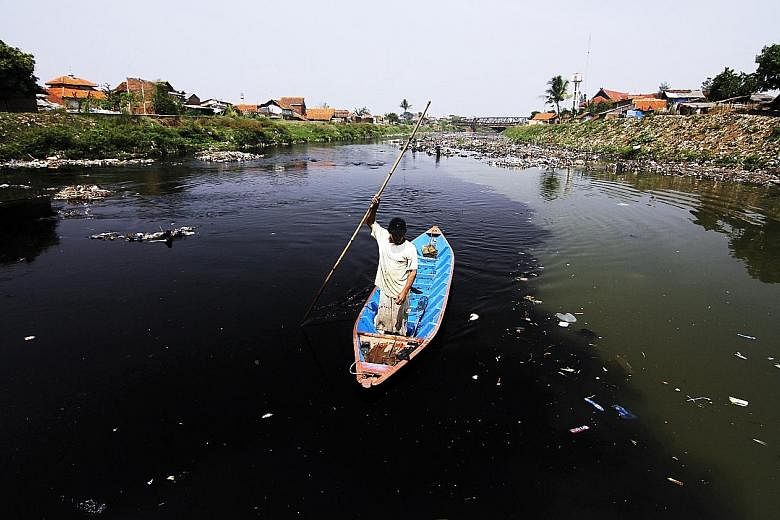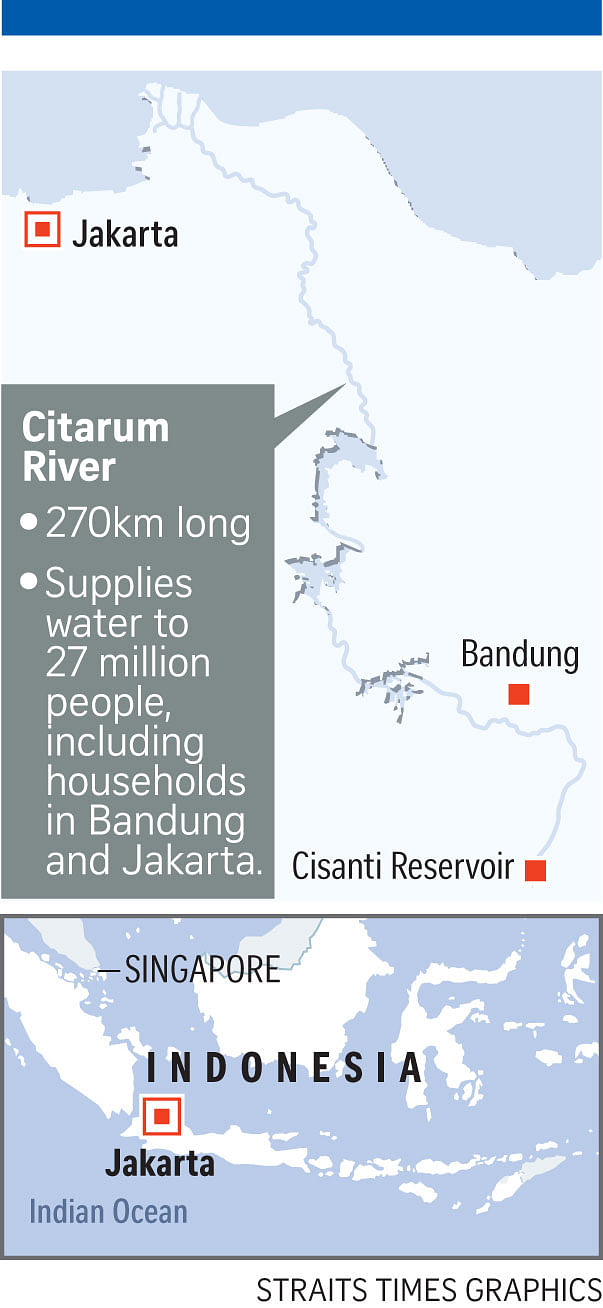In some stretches, West Java's Citarum River can turn green, yellow, navy blue or maroon before returning to black - all in a matter of hours.
Located 70km east of Jakarta, it is one of the 10 most polluted rivers in the world. It runs for 270km, supporting about 27 million people who use it as a source of water for their food crops and to produce piped water for households in the provincial capital of Bandung as well as the nation's capital, Jakarta.
For decades, the province's longest river has increasingly been exposed to industrial waste from factories producing anything from coloured fabrics to chocolate bars.
Mounting frustration about its state has prompted local military chief, Major-General Doni Monardo, to start non-war operations on-site - an unprecedented move for an Indonesian river. He will deploy 22 colonels and 5,000 troops to curb pollution of the once-pristine waterway and install CCTV video surveillance units along its banks.
As well as involving the army, Indonesia's government is also getting tough on river polluters, especially corporations. President Joko Widodo plans to issue new regulations to speed up prosecution. Currently, police cannot start investigating any company disposing liquid toxic waste until after a municipal environmental office issues a warning, puts the company on probation and the company reoffends.
Last month, soldiers began a large-scale clean-up operation, starting at the Cisanti Reservoir near the ancient fountains which supply water to the Citarum. Each colonel will later be assigned to help watch a 12km to 13km stretch of river to prevent public littering and factories disposing of waste, as well as to help villagers build septic tanks.
In this first-ever coordinated effort to clean the river, Islamic clerics, community leaders, and even the owner of local football club Persib are being roped in to help with the campaigns against littering and environmental damage.
Such actions are not only culturally taboo but also sinful, said Colonel Desi Ariyanto, spokesman for the West Java military command, who explained that Islam teaches devotees to keep clean.
Meanwhile, the Citarum is under mounting pressure from wet markets and animal farms with no waste management systems, households with no septic tanks, and - most worryingly - errant industrial corporations, West Java Governor Ahmad Heryawan told The Straits Times.
Although there is a working wastewater management plant, it is used by fewer than 10 per cent of the factories operating along the Citarum within the greater Bandung region, Mr Ahmad said.
More than half of these companies are in the textile and garment industry, and quite a number of them are joint ventures with investors from other countries, including Taiwan, South Korea and China, the governor added.
Dr Anang Sudama, head of West Java's environmental agency, said industrial waste makes up about 40 per cent of the total waste dumped, but its toxicity means it has a more damaging impact on the river.
Mr Joko said in a recent Facebook post: "Starting mid-January, we will fix Citarum river from upstream to downstream. Damaged forest at the upstream area will be replanted with trees as green belts. And we will comb the areas along the river and take action against companies that... dispose waste to the river."
Professor Martha Fani Cahyandito, who teaches environmental economics at the University of Padjadjaran in Bandung, said poverty and environmental damage go hand in hand.
"Poverty and job unavailability have triggered villagers to exploit land without considering the ecosystem balance," he told ST.
"Compensation schemes must be put forward to help them make ends meet, so they have the motivation to protect the environment and the Citarum ecosystem."


